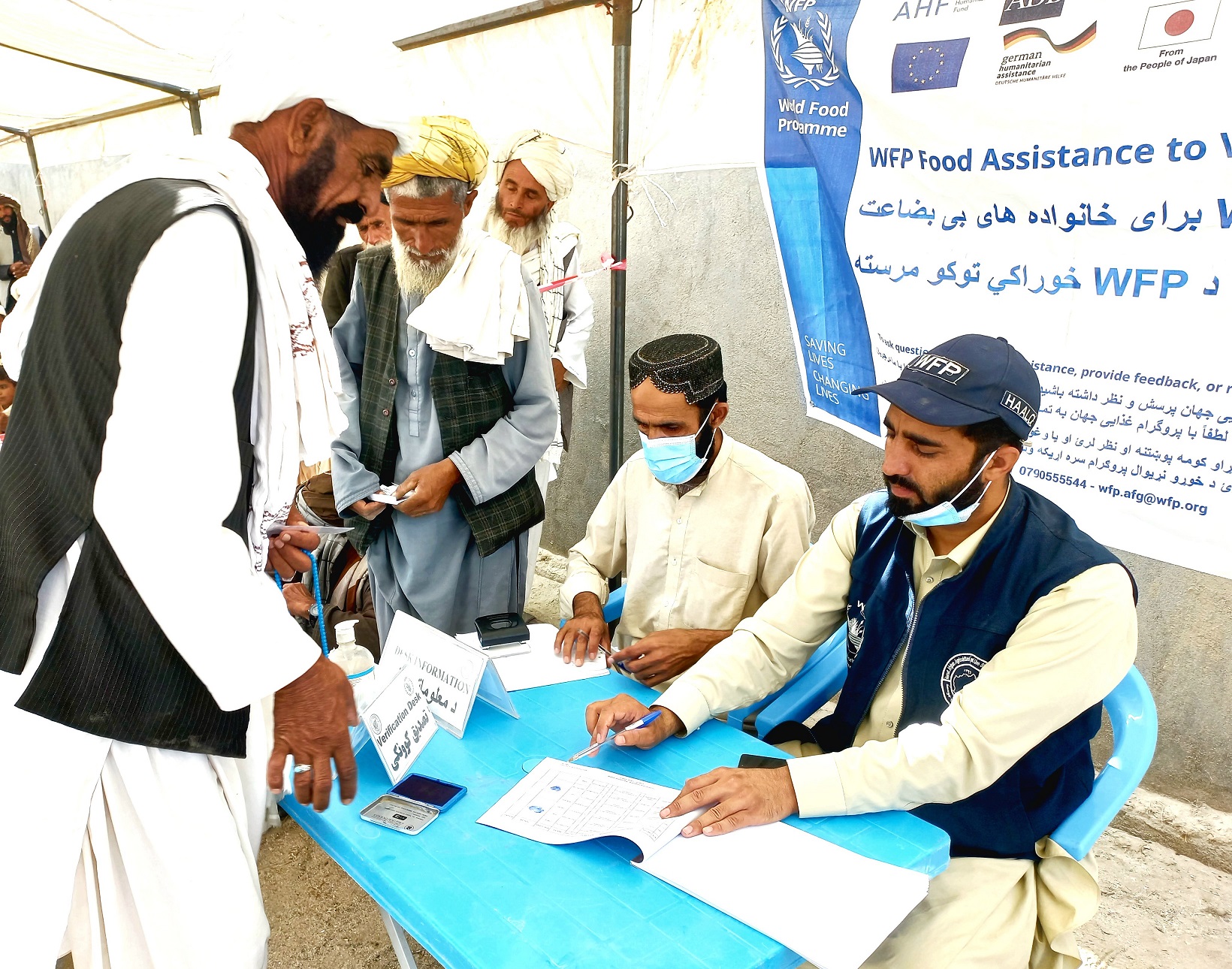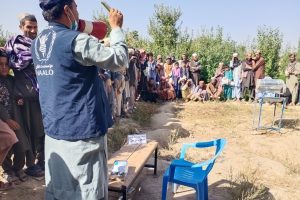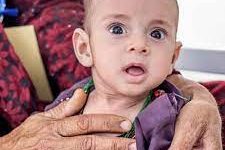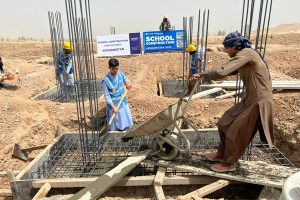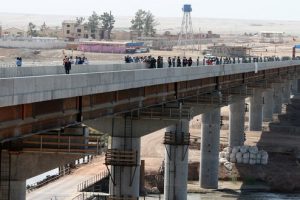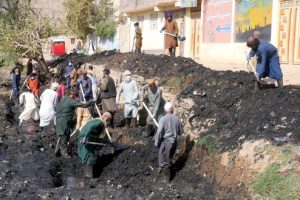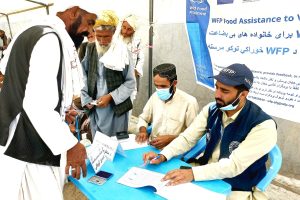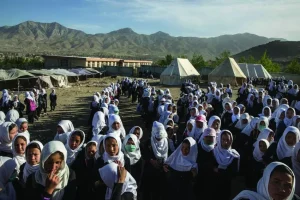As part of its Food Security and Livelihood Program, HAALO places a strong emphasis on empowering women and youth by providing tailored capacity-building and vocational training opportunities. Recognizing that these groups are disproportionately affected by poverty and limited livelihood options, HAALO’s initiative seeks to enhance their economic resilience, increase household income, and promote self-reliance.
Program Components:
- Vocational Training for Women:
- Skills Development: HAALO offers training in areas such as tailoring, handicrafts, food processing, and small-scale entrepreneurship. These skills are designed to provide women with income-generating opportunities that can be pursued from home or in local markets.
- Business and Financial Literacy: In addition to technical skills, women are trained in basic financial literacy, including budgeting, savings, and small business management. This enables them to better manage household finances and run successful micro-enterprises.
- Access to Market Networks: HAALO facilitates women’s access to local and regional markets, helping them sell their products and expand their business networks. This includes organizing women’s cooperatives to enhance collective bargaining power and market visibility.
- Youth Vocational Training and Employment Opportunities:
- Technical and Vocational Education: HAALO provides youth with training in trades such as carpentry, welding, mechanics, and computer skills. These vocations are selected based on market demand in the region to ensure that youth can find employment or start their own businesses.
- Apprenticeship Programs: Through partnerships with local businesses, HAALO offers apprenticeship opportunities where youth can gain hands-on experience and build professional networks, increasing their chances of securing long-term employment.
- Entrepreneurship Support: HAALO promotes youth entrepreneurship by providing mentorship, startup kits, and access to small grants or microcredit. This helps young people launch their own businesses, contributing to local economic growth.
- Women and Youth Empowerment through Livelihood Diversification:
- Agricultural Training for Women and Youth: HAALO involves women and youth in climate-smart agricultural training programs, teaching them new techniques for crop cultivation, livestock care, and food processing. This enhances their role in household food production and provides opportunities for income generation.
- Leadership and Advocacy Training: HAALO also equips women and youth with leadership skills, empowering them to take on decision-making roles in their communities. This includes training on community organizing, advocacy for women’s rights, and participation in local governance processes.
By equipping women and youth with valuable skills and providing access to resources, HAALO’s Capacity Building and Vocational Training Program aims to break the cycle of poverty, foster economic independence, and promote gender equality in rural communities across Ghazni province. These efforts ultimately contribute to stronger, more resilient households and communities, better equipped to handle the challenges of food insecurity and livelihood shocks.
1- Environments & Climate Change
HAALO’s Environment & Climate Change Program aims to address the growing challenges posed by environmental degradation and climate change in Central, Southern, and South East Region provinces. Recognizing that rural communities, particularly those dependent on agriculture and livestock, are highly vulnerable to climate-related shocks such as droughts, erratic rainfall, and soil degradation, HAALO works to build climate resilience through sustainable practices. The program integrates climate-smart agricultural techniques, natural resource management, and environmental conservation to safeguard both livelihoods and ecosystems.
Program Components:
- Climate-Smart Agriculture (CSA):
- Water Conservation and Irrigation Management: HAALO promotes the adoption of efficient water-use practices, including drip irrigation, rainwater harvesting, and the construction of small-scale irrigation infrastructure. These interventions help farmers cope with decreasing water availability and erratic rainfall patterns.
- Soil Conservation and Fertility Management: To combat soil degradation, HAALO trains farmers on techniques like crop rotation, agroforestry, and the use of organic fertilizers. These practices not only improve soil fertility but also enhance crop yields in the face of climate variability.
- Drought-Resistant Crops: HAALO introduces and distributes drought-tolerant seeds and crop varieties that are better suited to the changing climate in Ghazni. This helps farmers maintain food production despite reduced rainfall and increases resilience to future droughts.
- Sustainable Livestock Management:
- Pasture Management and Reforestation: HAALO works with livestock farmers to implement sustainable grazing practices and reduce overgrazing, which leads to land degradation. This includes promoting rotational grazing and planting trees and shrubs to restore degraded pastures and reduce soil erosion.
- Livestock Feed Alternatives: As climate change impacts fodder availability, HAALO provides training on alternative livestock feed sources, such as silage and crop residues, to ensure animals have access to adequate nutrition during lean periods.
- Renewable Energy and Resource Efficiency:
- Clean Cooking Solutions: To reduce reliance on wood for cooking, which leads to deforestation and air pollution, HAALO promotes the use of fuel-efficient stoves and alternative energy sources like biogas and solar cookers. This helps protect forests and improve air quality in rural households.
- Solar Energy for Agriculture: HAALO facilitates access to solar-powered irrigation systems and solar drying technologies for crop preservation. These renewable energy solutions reduce farmers’ dependency on costly and environmentally damaging fuel sources.
- Natural Resource Management and Environmental Protection:
- Community-Based Conservation Initiatives: HAALO engages local communities in the conservation and sustainable management of natural resources such as forests, water bodies, and grazing lands. This includes organizing community-led reforestation projects, protecting water catchment areas, and promoting sustainable fishing practices.
- Environmental Awareness and Education: HAALO conducts awareness campaigns on the importance of environmental conservation and the impacts of climate change. These initiatives target community members, local leaders, and schools, fostering a culture of environmental stewardship.
- Climate Change Adaptation and Resilience Building:
- Early Warning Systems: HAALO collaborates with local authorities and meteorological agencies to establish early warning systems for extreme weather events such as droughts or floods. These systems enable communities to prepare for and mitigate the impacts of climate-related disasters.
- Climate Resilience Planning: HAALO supports communities in developing climate resilience plans that focus on long-term adaptation strategies. These include diversified livelihoods, sustainable land use planning, and ecosystem restoration, all aimed at reducing vulnerability to climate shocks.
By integrating environmentally sustainable practices and promoting climate resilience, HAALO’s Environment & Climate Change Program contributes to the protection of natural resources, supports sustainable livelihoods, and helps communities adapt to the growing impacts of climate change. These efforts are crucial in ensuring food security and long-term sustainability for rural populations in Ghazni province.
